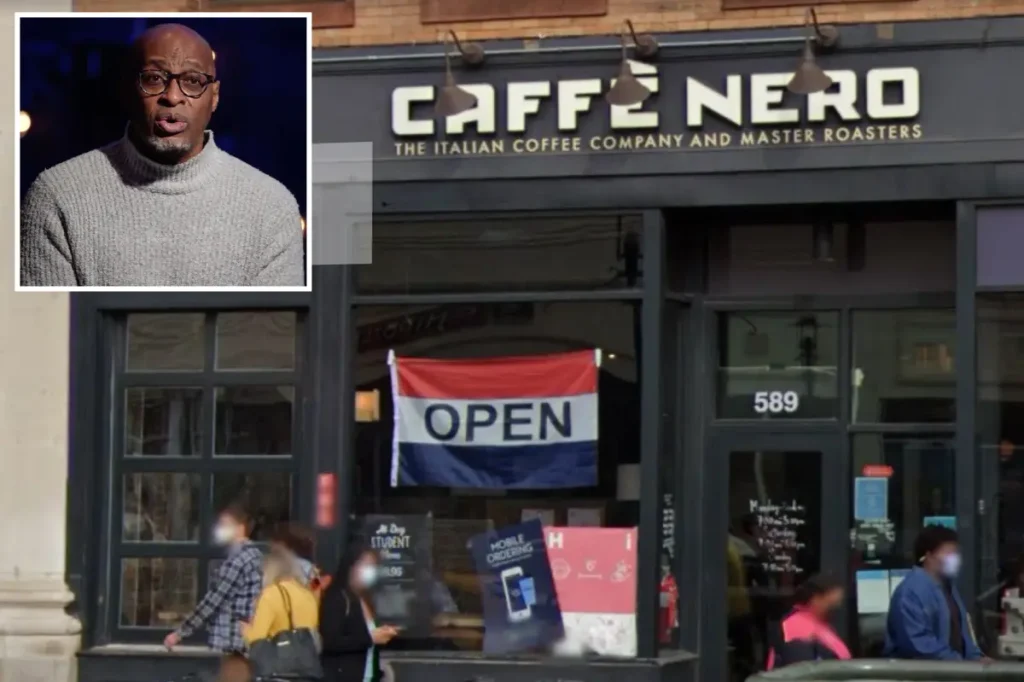Award-Winning Journalist Mistakenly Denied Service at Cambridge Café
In an unfortunate case of mistaken identity, Philip Martin, a 71-year-old retired award-winning Black journalist from GBH, faced a humiliating experience at Caffè Nero in Cambridge, Massachusetts last Thursday. Martin arrived at the café around 5 p.m. for a scheduled meeting with fellow journalist Naomi Kooker, who had already arrived, ordered a drink, and secured a table. When Martin attempted to place his order, he was shocked when the barista refused to serve him, claiming he had previously been banned from the establishment. “I was aghast,” Martin told Boston.com. “I said, ‘I’m completely confused. Are you mistaking me for someone else?’ And she said, ‘No, it’s you. We have you on videotape.'” The tense interaction escalated until both Martin and the café employee called 911, bringing Cambridge police officers to the scene.
After speaking separately with Martin and the café staff, the responding officers determined the situation was indeed a misunderstanding and allowed Martin to re-enter the establishment for his scheduled meeting. Martin, standing his ground throughout the ordeal, explained his perspective: “I was intent on not being pushed out of the store based on someone’s faulty misidentification.” The incident highlights the troubling reality many people of color face in everyday situations – being misidentified, stereotyped, or treated with suspicion while simply going about their daily lives. For Martin, a respected journalist who recently retired after a distinguished career, the experience was particularly jarring and demeaning, occurring in a public space in front of other patrons.
Caffè Nero has since issued an apology, with a spokesperson explaining that the confusion stemmed from “a genuine case of mistaken identity due to the close similarity of height, build, and style of beard and glasses with a customer who had been responsible for significant anti-social behaviour previously.” According to the café, the week before this incident, they had ejected a different customer for being “abusive to the staff” and allegedly urinating inside the establishment. The spokesperson added, “While it is not acceptable to confuse any customer with another, the prior incident was traumatic for the barista involved, and it triggered her response. Everyone at Caffè Nero is deeply sorry for the behaviour towards Mr. Martin, which should not have happened, even though it was a genuine error driven by a recent prior experience.”
Martin’s experience raises important questions about racial profiling and the assumptions people make based on appearance. When Martin was eventually shown a photograph of the person he had been confused with, he was bewildered by the comparison. “I looked at the photo, and I told them, ‘He looks nothing like me,'” Martin recounted. The man in the photo was described as a much younger, light-skinned Black man with a scruffy beard – similarities that would likely seem insufficient to most observers as grounds for confidently identifying someone as a previous troublemaker. The incident serves as a reminder of how racial bias, even when unintentional, can lead to harmful experiences for people of color in public spaces where others can move freely without such scrutiny or suspicion.
In response to this disturbing experience, Martin has filed formal complaints with the Massachusetts Commission Against Discrimination and the Cambridge Human Rights Commission, detailing the humiliation he endured. Despite this legal action, Martin has emphasized that he doesn’t want anyone to lose their job or for people to boycott the café. Instead, he’s seeking accountability and recognition of the harm caused. “I told them I had no interest whatsoever in anyone being fired over this,” Martin told Boston.com, demonstrating grace and restraint even after being subjected to such a degrading experience. Caffè Nero has indicated that employees at the Central Square location have since undergone training to prevent similar incidents in the future, acknowledging the need for better practices.
This incident joins a troubling pattern of similar cases across the country where Black customers have been unfairly treated in retail establishments. The psychological impact of such experiences – being publicly questioned, denied service, or having authorities called – extends far beyond the immediate moment, affecting one’s sense of belonging and security in public spaces. Martin’s professional standing as a respected journalist didn’t shield him from this experience, underscoring how pervasive such treatment can be regardless of accomplishment or status. The café’s swift apology and commitment to staff training represent positive steps, but the incident serves as a reminder of the ongoing need for businesses to examine implicit biases and ensure all customers are treated with equal dignity and respect, regardless of their appearance or race.


